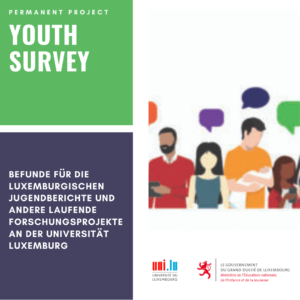Luxembourg is known for its cultural and national diversity. Approximately 48% of the population is foreigners live in Luxembourg. For 15-29-year-olds, this share was approximately 42% in 2019 and 2020. Furthermore, approximately 185,000 foreign workers commute to Luxembourg daily. Considering this, Luxembourg is an interesting case for investigating national identity and political participation of a diverse society (STATEC 2020a, STATEC 2020b, STATEC 2021). Especially, as the biographies of young people in Luxembourg are becoming increasingly complex (e.g., mixed national parents; highly skilled expatriates), it is worth looking into different aspects and valuations of national identity and political participation of youth in Luxembourg (Amtépé and Hartmann-Hirsch, 2011). In this policy report, we look into the aspects of national identity and how young people living in Luxembourg define a ‘real Luxembourger’ using the Youth Survey Luxembourg (2019) data (Sozio et al., 2020). This will give us the opportunity to investigate what aspects of identity (e.g. Luxembourgish ancestry; the time spent living in Luxembourg) matter for young people to feel part of Luxembourgish society and how these change across different social backgrounds and demographics. The discourse about the interrelations of political participation and youth brings forward the dominant narrative of a disengaging and passive youth. Here, we also investigate these statements in the Luxembourgish context. We analyse the level of interest in politics across young people in Luxembourg and their means of political participation. Finally, we especially investigated the relationship between aspects of national identity, and political interest and engagement of young people in Luxembourg.
Diversity, national identity, and political participation among young people in Luxembourg
Suggested Citation
Procopio, A., Schomaker, L. & Samuel, R. (2021). Diversity, national identity, and political participation among young people in Luxembourg. Esch-sur-Alzette. Ministère de l’Éducation nationale, de l’Enfance et de la Jeunesse (MENJE); University of Luxembourg (UL).



